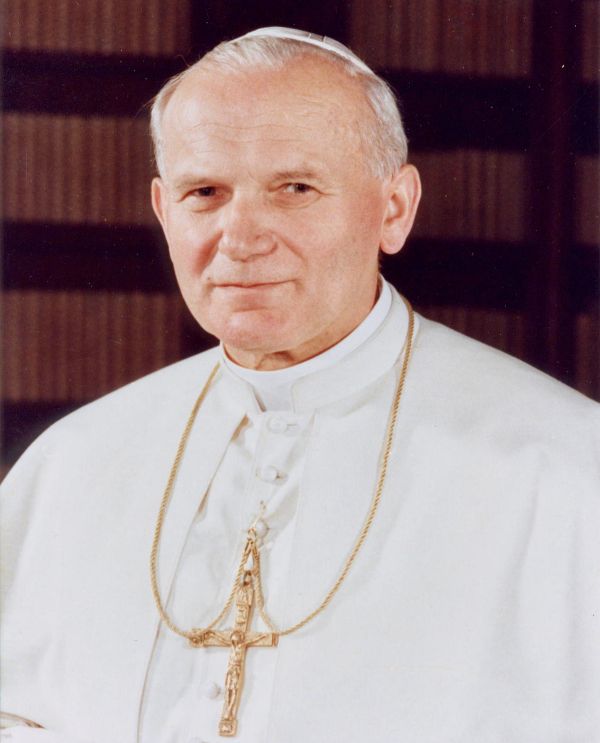Are you free? This question may seem startling initially, but it is worth asking. Sometimes, difficult circumstances can threaten to steal our freedom or make it more challenging to live with joy. However, true freedom is most clearly expressed when one meets the problems in life with hope, joy, optimism, and a smile. Put another way, one who is free takes ownership of the situations in his or her life. Jocko Willink, in his book Extreme Ownership, says, “Leadership must own everything in their world. There is no one else to blame.” Willink is a retired Navy Seal and understands half-hearted attempts to endure on mission when circumstances are stacked against him. As Christians, we take this idea of ownership even further: we conceive of ownership as the ability to respond with a supernatural outlook—not only in freedom, but in joy—to everything within one’s responsibility, especially the difficulties and challenges one faces. For a Christian, the pinnacle of Leadership is in embracing the Cross and waiting on the Lord, asking him how he wants us to respond to a given circumstance or difficulty.
The saints embrace this mindset. They did not see their circumstances as something they could do nothing about; instead, they saw obstacles as opportunities for God to work His greatness in them and as a call to action, a call to cooperate actively with Him. They knew God couldn’t steer a parked car.
St. John Paul II is a perfect example. When he was Archbishop of Krakow, the Communist government restricted the building of any new parishes. John Paul realized that the best way to fight this oppressive injunction was not by getting into a battle with the government, but rather by fostering a need for new parishes and cultivating hope in the people. He took several priests and placed them in communities where he hoped to establish parishes. These priests lived in these communities, spent time with families, and taught the faith.

St. John Paul II also would send 30 requests a year asking the Communist government to approve the establishment of new parishes. He also held public events and Masses to show the people that they could live their faith boldly even amid the horrible circumstances. The people then started to request new parishes so they could gather more formally. St. John Paul’s impact was profound: because of his leadership,13 parishes were built during the Communist regime.
You see what John Paul did! He did not concentrate on what he could not do; John Paul focused on what he had the power to do. He used his freedom and chose to take ownership for those things over which he had influence, and his choice impacted the course of history in the 20th century.
We should imitate this ownership St. John Paul II models through his Leadership. To grow in this kind of leadership, here are three powerful practices for you to consider that can help develop your ownership mindset.
Start on the Inside
Our initial interior reactions and the stories we tell ourselves matter. Do you say things like, “If only I had a different boss or teacher, then I could do better at work or in this class,” or “If only I were in a more Catholic environment, then I would share my faith more openly.”? “If only” statements won’t get you anywhere. They merely express things you can’t change or influence directly. Instead, ask, “What can I do in these circumstances?” Our Lord reminds us to start on the inside. “From the abundance of the heart, the mouth speaks.” St. Paul also encourages us to “take every thought captive to obey Christ” (2 Cor. 10:5). We can then start asking, “How do I serve others and love others more in these situations?” and “How is God calling me to grow through these current difficulties?”

Get Curious About What God is Doing
Life is messy. It presents us with pains and challenges along the way. You need space in your life to examine how you are reacting throughout the day, in different circumstances. A couple of good review times are around lunchtime and the end of the day. Just take a few minutes to review the day and ask how you have lived this Christian sense of ownership and responsibility. We want to be like a thermostat and not like a thermometer. While a thermostat sets the conditions of its environment, a thermometer reacts and reports its environment’s temperature. Leaders set the pace and resist dangerous currents.
Practice Abandonment and Courage
God wants our hearts. God permits us to experience these challenging situations so we can learn to put our complete trust in Him. St. Paul says, “Have no anxiety about anything, but in everything by prayer and supplication with thanksgiving let your requests be made known to God. And the peace of God, which passes all understanding, will keep your hearts and minds in Christ Jesus” (Phil 4:6-7). When nothing is going your way, turn to prayer and abandon yourself in the Sacred Heart of Jesus.
God has wonderful plans for us, and we need only to abandon His will and act with great trust that God is our loving Father. By growing in these three powerful practices, we will grow in the influence God wants us to have and light fires of faith and love in all our life circumstances.
